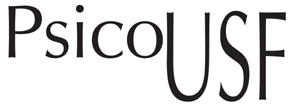This article describes the development of a social skills measure for elementary school children. 257 children, attending in second to fourth grades in public schools in the interior of São Paulo State, aged from 8 to 11 years old (mean age 9 years, DP=0,77) were studied. The scale was composed by 99 items that described scholar interpersonal relationship situations. The data were analyzed by means of principal components analysis with varimax rotation and suggested a three factor structure explaining 38,42% of variance. The dimensions were altruism and civility (alpha=0,85); self-control and resourcefulness in the social interaction (alpha=0,60) and coping assertivity (alpha=0,47). The application of the instrument was made collectively, in the students' classrooms, and only to those students whose parents provided previous authorization. The instrument assesses social skill factors splitting the difficulty of behavior expression of each behavior, which can be useful in the planning of interventions. These data enables the instrument to be used in future research.
Social skills; Psychological assessment; Rasch analysis; Factorial analysis; Differential item functioning





